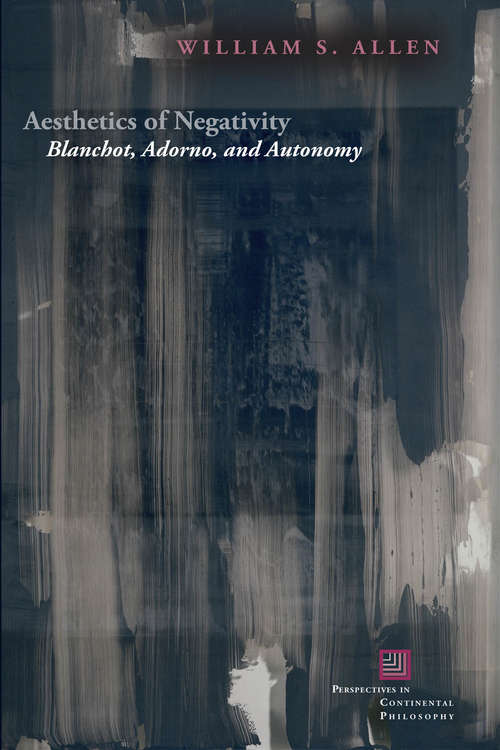Aesthetics of Negativity: Blanchot, Adorno, and Autonomy
By:
Sign Up Now!
Already a Member? Log In
You must be logged into Bookshare to access this title.
Learn about membership options,
or view our freely available titles.
- Synopsis
- Maurice Blanchot and Theodor W. Adorno are among the most difficult but also the most profound thinkers in twentieth-century aesthetics. While their methods and perspectives differ widely, they share a concern with the negativity of the artwork conceived in terms of either its experience and possibility or its critical expression. Such negativity is neither nihilistic nor pessimistic but concerns the status of the artwork and its autonomy in relation to its context or its experience. For both Blanchot and Adorno negativity is the key to understanding the status of the artwork in post-Kantian aesthetics and, although it indicates how art expresses critical possibilities, albeit negatively, it also shows that art bears an irreducible ambiguity such that its meaning can always negate itself. This ambiguity takes on an added material significance when considered in relation to language as the negativity of the work becomes aesthetic in the further sense of being both sensible and experimental, and in doing so the language of the literary work becomes a form of thinking that enables materiality to be thought in its ambiguity. In a series of rich and compelling readings, William S. Allen shows how an original and rigorous mode of thinking arises within Blanchot’s early writings and how Adorno’s aesthetics depends on a relation between language and materiality that has been widely overlooked. Furthermore, by reconsidering the problem of the autonomous work of art in terms of literature, a central issue in modernist aesthetics is given a greater critical and material relevance as a mode of thinking that is abstract and concrete, rigorous and ambiguous. While examples of this kind of writing can be found in the works of Blanchot and Beckett, the demands that such texts place on readers only confirm the challenges and the possibilities that literary autonomy poses to thought.
- Copyright:
- 2016
Book Details
- Book Quality:
- Publisher Quality
- ISBN-13:
- 9780823269303
- Related ISBNs:
- 9780823269280
- Publisher:
- Fordham University Press
- Date of Addition:
- 04/14/17
- Copyrighted By:
- Fordham University Press
- Adult content:
- No
- Language:
- English
- Has Image Descriptions:
- No
- Categories:
- History, Nonfiction, Art and Architecture, Literature and Fiction, Language Arts, Philosophy
- Submitted By:
- Bookshare Staff
- Usage Restrictions:
- This is a copyrighted book.
Reviews
Other Books
- by William S. Allen
- in History
- in Nonfiction
- in Art and Architecture
- in Literature and Fiction
- in Language Arts
- in Philosophy
